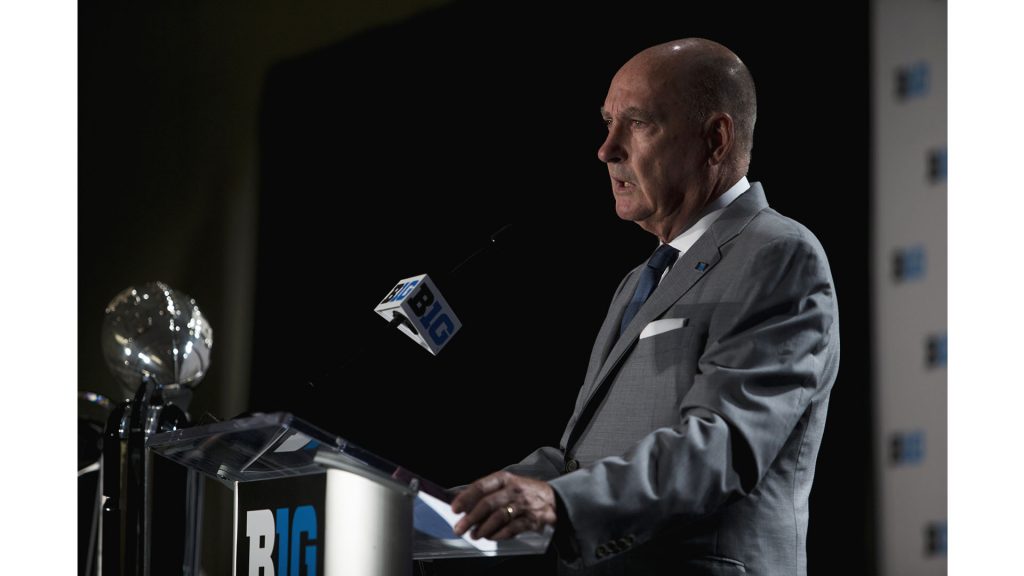Issues involving gambling were discussed by Big Ten coaches during Big Ten media days this week in Chicago.
Pete Ruden
peter-ruden@uiowa.edu
CHICAGO — The landscape of college sports is different now from what it was at this point last year.
In May, the Supreme Court pushed aside a law from 1992 that prevented most states from legalizing sports gambling. Now, regulating betting is in the hands of the states.
There are now three states with legal sports gambling: New Jersey, Delaware, and longtime bettors’ haven Nevada.
In addition, New York, Pennsylvania, Mississippi, West Virginia, and Rhode Island have recently passed bills.
Fourteen other states, including Iowa, have introduced a bill without its passing yet, according to ESPN.
That raises a problem for the NCAA and the Big Ten. With the legalization of sports gambling, both organizations will need to share with players what the laws really mean and how it affects them.
“First thing I would say is I think we’ve got great students playing football,” Big Ten Commissioner Jim Delany said. “Trust them. They’re young. We need to continue to educate them about the challenges associated with gambling and the importance of the integrity of the game.”
Gambling could create problems for coaches around the country, and Northwestern’s Pat Fitzgerald took a similar stance as the conference’s commissioner.
“I think it’s, first and foremost, important that we educate our guys and the understanding of the issues that surround gambling and understand from a standpoint of what may end up happening to them in dorms, people asking them questions that maybe they’ve never been asked before — these new instant friends that they have as true freshmen, things of that nature,” Fitzgerald said.
Another important piece to the betting puzzle is the potential enactment of nationwide injury reports, which would affect the play on the field and game planning in addition to those with interests in gambling.
The NFL already has an injury report system in which players are reported as active, probable, doubtful, and out, but in the college sphere, there are many different reasons that athletes could be inactive.
To protect the players in a way, second-year Minnesota head coach P.J. Fleck wants an availability report without all of the excess information.
“I don’t need to know why, whether it’s a suspension, whether it’s an injury, whether it’s a knee, whether it’s grades, whether it’s disciplines — I don’t need to know all that,” Fleck said. “But I’m a huge advocate. I’d love to be able to see who is going to be able to play and not play.”
But for there to be an injury report, every coach across the country or conference would have to be honest. Without the commitment to putting out a real injury report each week, there’s a possible unfair advantage for coaches not telling the truth.
“If we move forward to where we have to have a fully transparent conference-wide or national one, I’d have no problem with that, as long as we adhere to it,” Fitzgerald said. “There needs to be accountability. If there’s not accountability to it, then I’ll do whatever I have to do to protect our players, first and foremost, and protect our program.”
But nothing is confirmed yet. Sports betting is not legal in the majority of states as of right now, and Delany hopes to find a way to excuse amateur sports from being involved in the gambling world.
“I think that we would prefer a federal framework that either omits college sports from gambling at the state level,” Delany said. “And if that’s not possible, that there be some standardization of a framework so that college sports, high-school sports, Olympic sports — those categories of sports receive some additional protection.”



